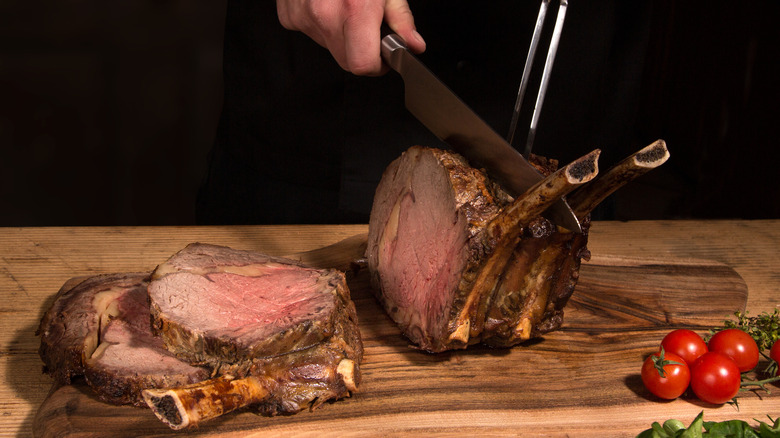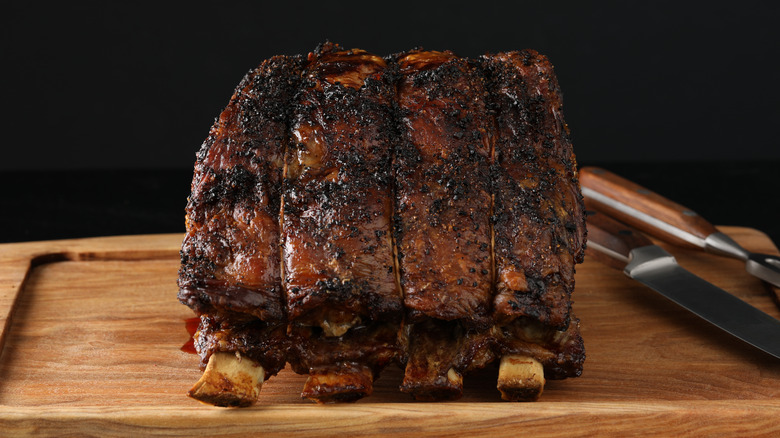Cooking Prime Rib At High Altitude Is Tricky – Here's Why
Air has weight. At sea level, 14.7 pounds are pressing down on every square inch of your body. Cumulatively, this is like having a car weighing down on you at all times. However, as you climb higher and higher, there is less air above you, so the pressure diminishes. For example, when you ascend to 5,000 feet above sea level, only 12.3 pounds of pressure are pressing down on you — this is why chip bags look puffier at higher elevations. While you might not be able to feel the change because internal and external pressures are the same, according to National Geographic, the laws of science that you learned in elementary school do not hold true at higher altitudes.
This is important because, at its core, cooking is a science (e.g., chemical reactions, such as the Maillard Reaction, make food taste better, and water boils at a specific temperature). Therefore, when the laws of science change, cooking can get a little tricky. For instance, at higher altitudes, water boils at a lower temperature, and the air is dryer. Both of these conditions affect how you cook, especially when it comes to prime rib, which is best served juicy.
Tips for cooking prime rib at higher altitudes
When cooking prime rib at higher altitudes, there are two primary concerns: making sure you don't overcook the meat and keeping it moist. According to the U.S. Department of Agriculture, it is easy to overcook meat and poultry at higher altitudes. Additionally, since the science is different, an abundance of caution could cause you to accidentally undercook your meat. The only way to be certain that your prime rib reaches a minimum internal temperature of 145 degrees is to use a meat thermometer. This is because a meat thermometer measures internal temperature.
The fix for avoiding dry prime rib is rather simple due to the low-humidity climate at higher elevations. All you have to do is cover the meat to prevent the evaporating steam from escaping. An appliance that traps moisture, such as a slow cooker, will help keep your prime rib moist at higher altitudes. Just remember to adjust the temperature and cooking time and refrain from lifting the lid.

